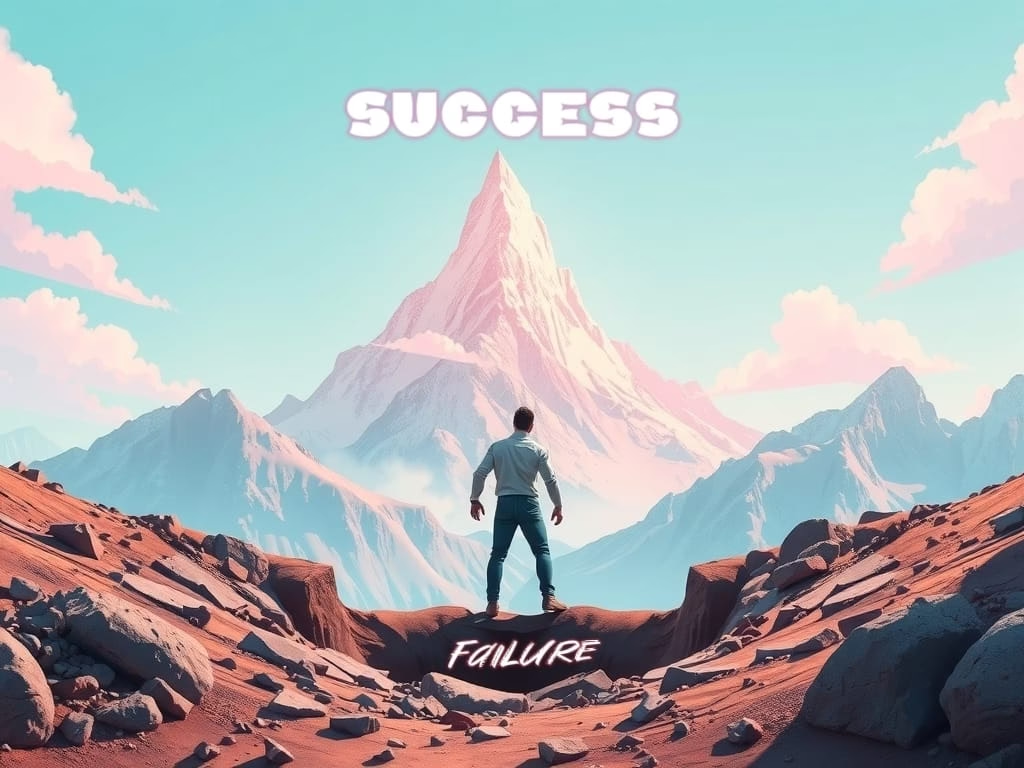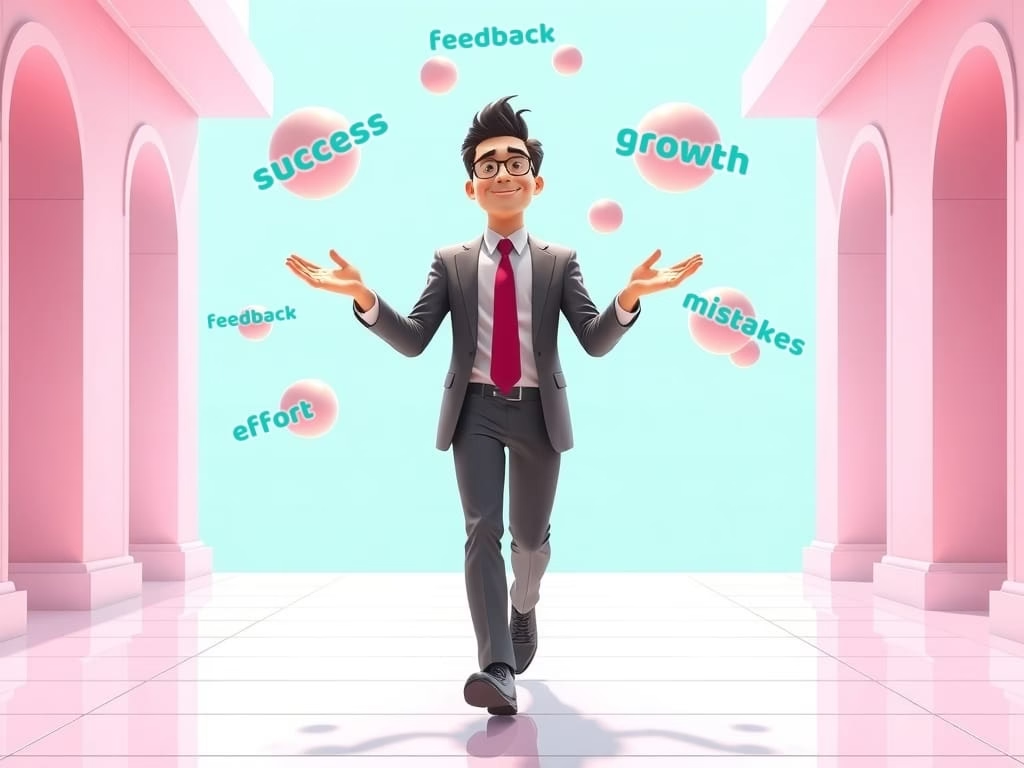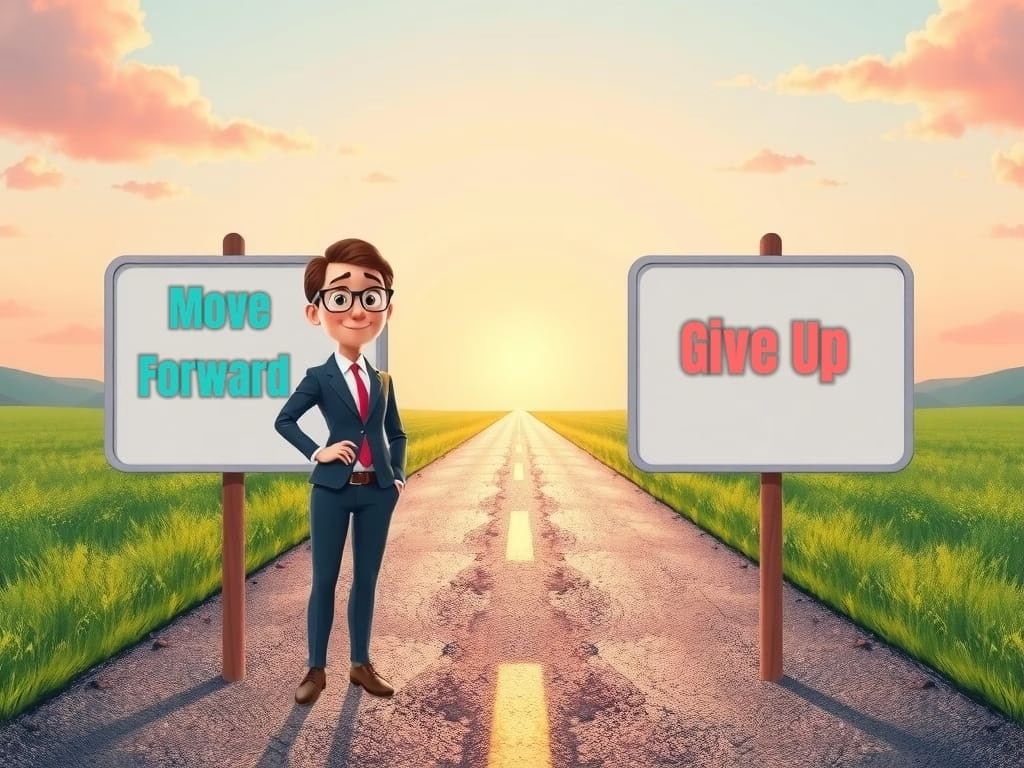Embrace Failure, Fuel Success: How to Turn Setbacks Into Powerful Comebacks

Table of Contents
Failure. It stings. It shakes our confidence. It can make us question our ability, our worth, even our future. But here’s a truth that most people overlook: Failure is not the end—it’s the very beginning of your next chapter.
Every successful person has walked through the fire of failure. What separates those who succeed from those who stay stuck is not talent or luck—it’s the mindset to use failure as a tool for growth.
In this article, you’ll learn the importance to transform failure into future success, using emotionally powerful stories, proven strategies, and practical steps backed by experience and research.

What Is Failure, Really? A New Definition
Let’s redefine failure.
Failure is not a definition of who you are. It is an event, not a permanent label.
Many people fear failing because they tie it to identity. But in reality, failure is a test—it reveals what’s working, what isn’t, and where you need to grow. It gives you a bigger picture of what’s possible when you choose to see it as feedback, not condemnation.
Michael Jordan once said: “I’ve failed over and over and over again in my life. And that is why I succeed.”
Walt Disney was fired from a newspaper job for “lacking imagination.” Today, his name defines magic.
These aren’t just motivational stories. They’re real life examples of how people embraced failure that led to their success.
Why Failing Is Crucial for Personal and Professional Growth
Failure is often seen as something to be avoided at all costs. But in truth, it is one of life’s most powerful teachers—especially when it comes to personal growth and professional life. When you experience failure, you’re handed something no book, course, or podcast can fully offer: real-life data about what works, what doesn’t, and who you’re becoming in the process.
Whether it’s a failed job interview, a missed business opportunity, or a breakdown in a relationship, each disappointment reveals something important—about your assumptions, your mindset, your strategy, and even your blind spots.
Let’s break down how failing actually accelerates your journey toward future success:
1. Own Your Failures to Reclaim Your Power
Most people default to blame when things go wrong—the team, the timing, the market, the manager. But here’s the truth: the moment you stop pointing fingers and start owning your part, you take your power back.
When you say, “I made a mistake,” or “I could’ve prepared better,” you don’t diminish yourself—you empower yourself to change, evolve, and lead more effectively. Taking responsibility is the fastest route to reclaiming control of your results.
2. Reflect Deeply and Ask the Hard Questions
Failure isn’t valuable unless you extract the lessons. Reflection is where transformation happens.
Ask yourself:
- What was the desired outcome, and how far did I fall from it?
- What choices or patterns led me here?
- What new insights can I take with me to avoid this in the future?
When you reflect instead of react, you shift from regret to growth—from stuck to success.
3. Seek the Correct Answer Through Honest Feedback
Don’t guess what went wrong—ask. Feedback from mentors, colleagues, or coaches can offer the perspective you can’t see yourself. Often, it’s not the obvious thing that led to the failure, but a misalignment in communication, expectations, or preparation.
These insights are often subtle—but they make the difference between repeating the same mistake or creating real changes. Feedback isn’t criticism. It’s the GPS that gets you back on track.

4. Avoid Repetition: Use Your Failures as Data
If you don’t learn from a failure, you’re likely to repeat it—especially under stress or pressure. Treat each failure like a management exercise. Analyse the process, the timing, the people involved, and your own emotional responses.
Over time, this habit builds your skills in strategic thinking and resilience. This is especially critical in your professional life, where emotional maturity and decision-making ability are just as important as technical competence.
5. What the Research Says: Failure Makes You Smarter
Psychological research has shown that people who reflect on their failures—and make time to journal or debrief—experience measurable gains in future performance, confidence, and learning agility.
Why? Because failing helps you build what’s called “cognitive resilience”—the ability to face complexity and challenge without shutting down.
In fact, some of the most successful leaders and companies embrace failure as part of their development process. Google, for instance, runs post-mortems after major projects—not to assign blame, but to learn. Because in the long run, that knowledge is more valuable than a short-term win.
So the next time you fall short, remember this:
You’re not being punished. You’re being prepared.
Prepared to think differently.
Prepared to lead more powerfully.
Prepared to step into your true calling with eyes wide open.
Because failing isn’t the opposite of success. It’s the curriculum for becoming the person who can truly achieve it.

Career Growth: Let Failure Lead You to the Dream Job
Want your dream job? You’ll likely need to face rejection, missteps, and failed attempts first. That’s not a setback—it’s a requirement.
Here’s the truth: The most successful people you admire have failed more times than you’ve even tried.
- A missed job opportunity might lead you to a better company.
- A failed project could show you a more profitable business idea.
- Getting fired could push you into discovering your true calling.
Don’t fear the process—trust it.
Every time you apply, interview, launch, or try again, you determine your direction, sharpen your skills, and expand your ability to lead and succeed. Your career isn’t a straight course—it’s a series of turns, and failing helps you navigate it better.

Mental Health and the Emotional Weight of Failure
We must talk about the impact of failure on mental health. Falling short in any area of life can trigger shame, anxiety, even depression—especially if we’ve internalised the idea that our worth equals our results.
But here’s what you need to remember:
- You are not your mistakes.
- You are not your outcomes.
- You are not the worst thing that has ever happened to you.
Protecting your mental health when failure strikes means developing compassion for yourself. Self-care is not a luxury; it’s a survival strategy.
Consider Doing This:
- Journal about your disappointment and what it taught you.
- Surround yourself with trusted participants—friends, mentors, or coaches—who remind you of your strengths.
- Use management techniques like mindfulness or breath-work to ground yourself during setbacks.

Strategies to Move Forward and Succeed
Failure isn’t the end of your story—it’s the training ground for your future success. The key is learning how to fail forward: to turn every setback into momentum, every disappointment into direction, and every mistake into valuable lessons.
Here’s how to take your own failures and convert them into lasting progress and results that align with your true calling:
1. Set Purposeful Goals that Align with Your Life Vision
Most people chase success without knowing what it really means to them. They follow someone else’s definition of achievement—and end up falling short not because they failed, but because they were on the wrong course.
Instead, define success for you:
- What do you want your life to look like in the long run?
- What outcomes would make you feel proud, fulfilled, and aligned?
🎯 Purpose-driven goals rooted in your values will give your effort meaning—even when you’re facing setbacks.

2. Break Big Goals Into Mini-Milestones
Large goals can feel overwhelming, especially after failing. But success isn’t a giant leap—it’s a series of small, consistent steps.
Break your goals into mini-wins:
- One email sent.
- One job application submitted.
- One tough conversation had.
Each small step forward helps build confidence, momentum, and motivation. These “micro-successes” retrain your brain to expect progress—not perfection.
Progress over perfection leads to powerful transformation.
3. Celebrate All the Things—Especially the Hard Ones
When you’ve experienced failure, it’s easy to minimise your wins. But the truth is—just getting back up and trying again is worth celebrating.
Celebrate:
- The fact that you showed up.
- The fact that you didn’t give up.
- The fact that you’re still moving forward, despite the fear.
Every attempt counts. Every act of determination counts. When you acknowledge effort, you fuel your own fire.
4. Adjust Your Course—Frequently and Fearlessly
You don’t need to wait for disaster to pivot. Successful people don’t just push harder—they adapt. They test, tweak, and constantly re-align with their bigger picture.
Whether it’s your job, your business strategy, or your personal goals—pause often to reflect:
- Is this still the right direction?
- What is the feedback telling me?
- Am I ignoring a sign that it’s time for a different direction?
Recalibration isn’t weakness. It’s smart management of your energy, attention, and potential.

5. Stay in Motion, Even When It’s Messy
Perfectionism is a dream killer. Waiting for the “right time” or the correct answer can paralyse even the most talented individuals. But action creates clarity. Every step you take—no matter how imperfect—is part of the process of becoming the person who can truly succeed.
In the face of failure, motion is the ultimate antidote.
So take that next step:
- Apply for that role.
- Launch the project.
- Have the hard conversation.
- Pitch your idea.
Because even if the outcome isn’t perfect, the experience will be. When you implement these strategies, you’re not avoiding failure—you’re learning how to lead your life, your career, and your goals through it. And that is where real, sustainable success is born.

Real Life Inspiration: Failing Forward into Success
Elena, a marketing executive, failed to close a high-stakes business pitch that she’d prepared for months. She was devastated—embarrassed in front of the leaders and started doubting her skills.
But instead of quitting, she chose to analyse what went wrong. She sought honest feedback (some of it were painful truth), reviewed the project details, and worked with an executive coach to refine her message.
Three months later, she closed a bigger deal with double the money on the table.
What changed?
Her perspective.
Her willingness to learn.
Her ability to accept failure as part of the process.
She didn’t just recover. She rose!

Final Thoughts: Redefining What It Means to Fail
As Henry Ford said, “failure is simply the opportunity to begin again, this time more intelligently”.
If you’ve failed, congratulations—you’re in motion. You’re discovering ways that doesn’t work. And every failed attempts will only bring you closer and closer to unearth what works. And soon, you’ll find that you are one step closer to success.
Let go of the shame. Let go of the fear. Embrace the lesson.
Failure isn’t the opposite of success. It’s the path to it.
Ready to Turn Failure into Your Greatest Asset?
You don’t have to navigate your failures alone.
At Rainmakers Coaching International, we help you reflect, grow, and find the path to your true calling. Whether you’re rebuilding after a career setback or ready to move in a different career direction, we’ll guide you toward the outcomes that truly matter.
Book your complimentary coaching call with Coach Rainy now and start turning your setbacks into your success story.
👉 Schedule Your Free 90 Minutes Coaching Discovery Call
What’s Next?
Find out if your confidence level is undermining your success here.
Wondering if you are ready for coaching? Take this coaching readiness questionnaire
For more insights on personal growth and coaching, explore our blog articles.


